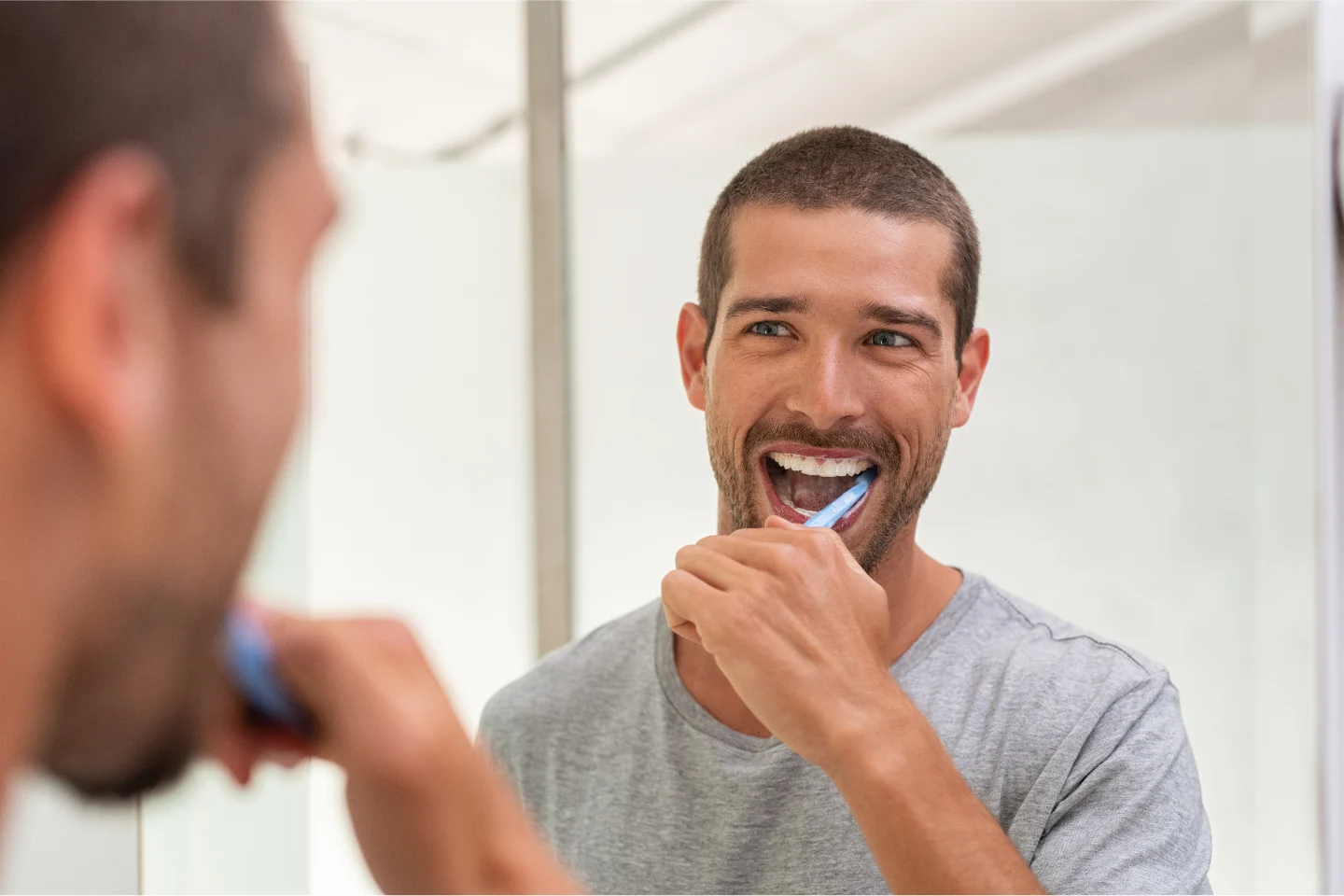October 24, 2025



Brushing your teeth in the morning seems like a small step, but when you do it can actually make a big difference to your oral health. Many people aren’t sure whether brushing before or after breakfast is better. Both have benefits, but one option can help protect your teeth more effectively.
Let’s look at what dentists recommend and how you can make the most of your morning brushing habit.
When you sleep, saliva flow slows down, and bacteria start to build up in your mouth. This is what causes that “morning breath” feeling when you wake up.
Brushing your teeth as part of your morning routine helps remove this layer of bacteria and freshens your mouth. It also coats your teeth with fluoride from your toothpaste, which helps strengthen enamel and protect against decay during the day.
To keep your mouth even healthier, it’s worth combining regular brushing with professional dental hygiene appointments to prevent plaque build-up and maintain long-term freshness.
Most dental professionals suggest brushing before breakfast. Doing so helps clean away bacteria that formed overnight and gives your teeth a protective fluoride layer before you eat. This helps reduce the effects of acidic or sugary foods, like fruit juice, coffee, or toast with jam. You can also enhance your brushing technique by following our guide on correct brushing habits to make sure every area of your mouth gets the right care.
Brushing first thing prepares your teeth for breakfast, so acids and sugars have less chance to cause harm.
If you prefer brushing after breakfast, that’s fine too—but it’s best to wait at least 30 minutes after eating. Many breakfast foods, such as citrus fruits or juice, are acidic and can temporarily soften your enamel. Brushing too soon can wear it down over time.
For an extra layer of protection, consider using TePe interdental brushes to clean between teeth after meals and reduce plaque in hard-to-reach spots.
You can simply rinse your mouth with water after eating to wash away food particles and neutralise acids while you wait to brush.
Here’s an easy way to structure your morning:
Choosing the right toothbrush type—electric or manual—can also make a difference in how effectively you clean your teeth.
This approach keeps your teeth clean, strong, and protected throughout the day.
If you’re unsure about the best brushing routine or technique, a dental hygienist can provide tailored advice and help you develop an effective oral care plan.
Should I brush before or after breakfast?
Brushing before breakfast is generally better for your enamel and helps remove bacteria that build up overnight.
What happens if I brush after breakfast?
You can, but try to wait at least 30 minutes after eating to protect your enamel from acid wear.
Is rinsing after breakfast enough?
Rinsing with water helps remove food particles and balance the mouth’s pH if you’ve already brushed earlier.
Does what I eat for breakfast affect my teeth?
Yes. Foods like juice, fruit, or coffee are acidic and can weaken enamel, so brushing beforehand helps protect your teeth.
Brushing before breakfast is usually the best choice for keeping your teeth protected and your mouth fresh. However, if you prefer brushing after breakfast, make sure to wait for a while before doing so. The key is to keep a consistent daily routine and use fluoride toothpaste for lasting protection.
At Freshdental, we’re here to help you maintain strong, healthy teeth with the right daily habits. Whether you’re due for a check-up or need personalised advice, our friendly dentist in London can guide you on the best oral care routine for your smile.
Book your hygiene visit with Freshdental today and start your day the right way.
I have just completed Invisalign treatment here and am thrilled with the results.


I have been seeing Monik at Freshdental for a while now and couldn't be happier with the service. I have just completed Invisalign treatment here and am thrilled with the results. Have recommended Monik to many of my friends & family and will continue to do to.
